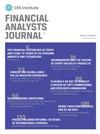The Relation of Financial and Industrial Stresses to Monetary Policy Parameters in the Russian Economy
IF 3.4
3区 经济学
Q1 BUSINESS, FINANCE
引用次数: 0
Abstract
The paper examines the relationship between financial and industrial stresses in the Russian economy in 2006–2019, mediated by the monetary policy of the state. Stress indices are constructed on the basi of a number of financial market and industrial sector indicators of the Russian economy. These variables are aggregated using the principal component analysis. Stress indices are calculated as the moving difference between the standard deviation and the mean value of the first principal component. The graphical and correlation analysis confirms that industrial stress in the Russian economy grows during financial crises, accompanied by an increase in credit interest rates (including the key rate) and the scale of refinancing of credit institutions by the Bank of Russia. Based on the construction of ARDL models, we obtained convincing evidence of the positive impact of both a short-term increase in the key interest rate and a longer increase in the scale of refinancing of credit institutions by the Bank of Russia on the reduction of financial and industrial stresses in the Russian economy, which, however, appears in different time intervals. We concluded that the combined management of industrial and financial stresses, taking into account their interaction and sensitivity to different instruments, requires the search for the optimal combination of monetary regulation methods. The results obtained may be useful in conducting a prudent monetary policy in periods of financial instability.俄罗斯经济中金融和工业压力与货币政策参数的关系
本文以国家货币政策为中介,研究了2006-2019年俄罗斯经济中金融和工业压力之间的关系。压力指数是在俄罗斯经济的一些金融市场和工业部门指标的基础上构建的。这些变量使用主成分分析进行汇总。应力指数计算为第一主成分的标准差与平均值之间的移动差。图表和相关分析证实,在金融危机期间,俄罗斯经济中的工业压力增加,同时信贷利率(包括关键利率)和俄罗斯央行信贷机构再融资规模增加。基于ARDL模型的构建,我们获得了令人信服的证据,证明俄罗斯央行短期上调关键利率和较长时间上调信贷机构再融资规模对减轻俄罗斯经济中的金融和工业压力都有积极影响,但这种影响出现的时间间隔不同。我们的结论是,考虑到它们的相互作用和对不同工具的敏感性,对工业和金融压力的综合管理需要寻找货币监管方法的最佳组合。所得结果可能有助于在金融不稳定时期实施审慎的货币政策。
本文章由计算机程序翻译,如有差异,请以英文原文为准。
求助全文
约1分钟内获得全文
求助全文
来源期刊

Financial Analysts Journal
BUSINESS, FINANCE-
CiteScore
5.40
自引率
7.10%
发文量
31
期刊介绍:
The Financial Analysts Journal aims to be the leading practitioner journal in the investment management community by advancing the knowledge and understanding of the practice of investment management through the publication of rigorous, peer-reviewed, practitioner-relevant research from leading academics and practitioners.
 求助内容:
求助内容: 应助结果提醒方式:
应助结果提醒方式:


